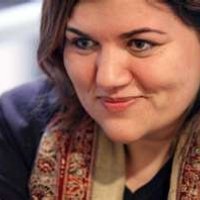Political Dispossession of Roma in Contemporary Europe
The Global Europe Program is pleased to host the 9th Annual Ion Ratiu Democracy Award Workshop on Political Dispossession of Roma in Contemporary Europe featuring Dr. Angela Kocze, leading Hungarian Roma rights activist and a visiting assistant professor at Wake Forest University, NC.
Dr. Kocze has an international reputation for interdisciplinary approach, combining political activism and policy-making with in-depth participatory research studies on the Roma situation in Hungary and elsewhere. Dr. Kocze also worked as a founding director of the European Roma Information Office (ERIO) in Brussels (2003-2004), as well as the former director of the human rights education program at the European Roma Rights Centre (1998-2003) in Budapest. Dr. Kocze was the founding director of the Romaversitas program (1996) in Budapest which offers scholarships and mentorship for Roma minority university students.
Established in 2005, the Ion Ratiu Democracy Award (IRDA) aims to bring visibility and international recognition to the ideas, ideals and accomplishments of individuals around the world who are working on behalf of democracy. It brings recognition to the importance of the work carried out by democracy activists around the world. The event expresses the deep commitment to democracy of the late Ion Ratiu through his contributions as a Romanian politician as well as his interest in democratic change worldwide.
Previous awardees include Aung San Suu Kyi (Myanmar, 2012), Nabeel Rajab (Bahrain, 2011), Oleg Kozlovsky (Russia, 2010), Adam Michnik (Poland, 2009), Eleonora Cercavschi (Moldova, 2008), Anatoli Mikhailov (Belarus, 2007), Saad Ibrahim (Egypt, 2006), and Sergio Aguayo (Mexico, 2005).
Speakers

Visiting Assistant Professor, Wake Forest University

Woodrow Wilson Center
Hosted By

Global Europe Program
The Global Europe Program is focused on Europe’s capabilities, and how it engages on critical global issues. We investigate European approaches to critical global issues. We examine Europe’s relations with Russia and Eurasia, China and the Indo-Pacific, the Middle East and Africa. Our initiatives include “Ukraine in Europe”—an examination of what it will take to make Ukraine’s European future a reality. But we also examine the role of NATO, the European Union and the OSCE, Europe’s energy security, transatlantic trade disputes, and challenges to democracy. The Global Europe Program’s staff, scholars-in-residence, and Global Fellows participate in seminars, policy study groups, and international conferences to provide analytical recommendations to policy makers and the media. Read more
